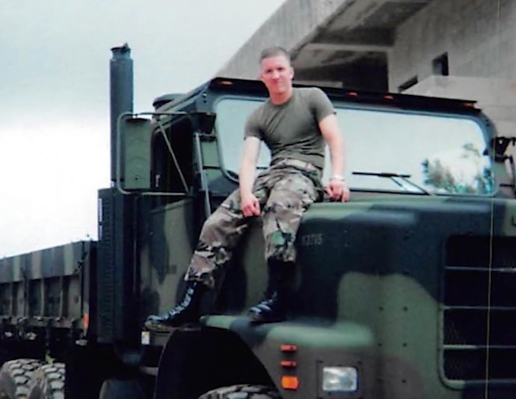Loading component...
The men and women who have served in the United States military have experienced things most of us cannot imagine. Many have been stationed in far-away places and faced incredibly dangerous situations in combat. Once they leave the service, re-entry into civilian life often presents different challenges.
At Michigan State University, researchers, educators and staff are dedicated to helping combat veterans and MSU students succeed back on home soil.
Healing the wounds of war
MSU is the first university in the country to launch a Combat Veterans Certificate Program, which immerses social work graduate students in veterans’ intense and emotional journeys from boot camp to war to civilian life.
While other universities offer social work classes on working with veterans, those curricula are broad.
“We have deliberately chosen to make our focus on those veterans who have experienced combat because that is something few people (especially civilians) understand, and it brings with it unique challenges,” says Glenn Stutzky, senior clinical instructor in the School of Social Work.
There are no textbooks or lectures. Instead, combat veterans serve as the instructors, sharing on video — and in intimate conversations with students — some of their darkest moments. To gain insight into a combat veteran’s mindset, students write a last letter home and carry it around; wear dog tags; relive 9/11 through text messages, video clips and audio of phone calls; and receive ready-to-eat meals and care packages.
It’s a bond that’s crucial to helping veterans suffering from emotional and physical pain, says Tina Thompson, coordinator of the Combat Veterans Certificate Program, a social worker and wife of a combat veteran. Her husband, Kevin, a former Marine, returned home from Iraq physically, emotionally and mentally scarred, later revealing he was suicidal.
“Knowing this was happening in my own home — and I had no idea — really shook me to my core, and it reinforced the need for us to be focusing on the issues that we are in this program,” she says. “I had many years of social work education under my belt, but in all those years, I never learned a single thing about the military population or the challenges they experience.
The program is taught online and includes an option for current master’s in social work students and a non-credit option for human service professionals. The certificate program is also a required component for recipients of a scholarship offered by the school to help veterans pursue graduate degrees in social work.
Beekeeping as therapy
Heroes to Hives, an innovative program offered by MSU Extension, is helping veterans serve their country in a different way — by protecting honeybees. In exchange, the work serves as therapy for combat vets suffering from severe post-traumatic stress disorder and traumatic brain injuries.
With six sites across the state, the program trains veterans to become the next generation of beekeepers. Their new skills help them save honeybee populations and promote food security.
Heroes to Hives is the largest program of its kind in the country, with nearly 300 veterans and their dependents participating. Through free instruction, mentorship and support, veterans can work through the mental health effects of combat, as well as the challenges of transitioning from military to civilian life.
Adam Ingrao, a fourth-generation Army veteran and MSU Extension agricultural entomologist, founded the program in 2015.
“Leaving the military is not an easy thing,” says Ingrao. “I was one of those individuals who struggled with opioid abuse, and beekeeping was the first thing that allowed me to kind of recover from some of those challenges of my transition.”

Equipped with a firm foundation in beekeeping and a long-term personal and professional support network, graduates of Heroes to Hives look forward to opportunities for small business ownership, employment in commercial beekeeping operations and prospects for diversifying farm income.
Helping Spartan vets
MSU’s Student Veterans Resource Center helps veterans succeed by providing outreach and resources during their transition from military to college life.
The SVRC provides student veterans with a variety of services, including space for studying and socializing, VA benefits and health information, financial aid application support, transition services, career development, employment/internship opportunities and referrals to many other programs and services both on- and off-campus.
Patrick Forystek, a Marine Corps veteran and coordinator for the center, says that serving in the military himself doesn’t make him better at his job, but it does give him a different perspective.
“It’s helpful because you have a veteran who comes out and they recognize you as a peer,” he says. "Having gone through that transition myself, that's where the value comes in. I know what helped and what didn’t and how lost I felt in that situation. Knowing what I know now, it makes it easier to help others navigate this challenging transition.”





